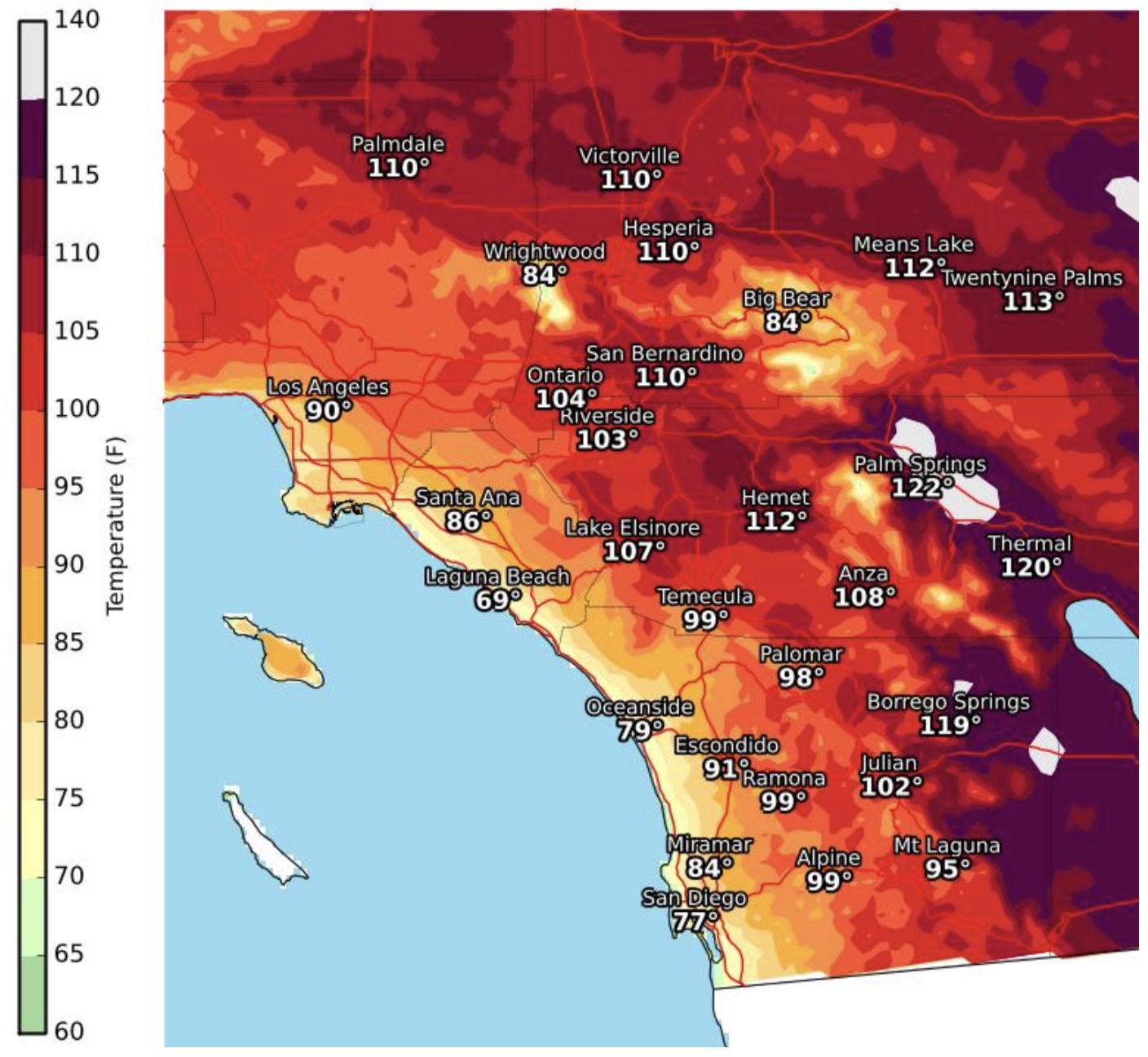 Extreme Heat
Extreme Heat
An extreme heat event is two or more days and nights of unusually high heat for your region. Episodes of extreme heat, create a greater danger to residents from heat-related illnesses -- especially those who are elderly, children or medically frail.
Heat stroke is an emergency - call 911
Riverside County is diverse and ranges from mountain communities to vast deserts. Temperatures can vary dramatically and extreme weather is not uncommon. Staying informed on weather forecasts will help you plan and prepare for when extreme heat or cold is forecast, take precautions early to avoid weather-related illness or death.
Tips to help avoid heat-related illnesses.
- Take extra precautions if you work or spend time outside
- When possible, reschedule strenuous activities to early morning or evening when temperatures are lower
- Know the signs and symptoms of heat exhaustion and heat stroke (click here for signs and symptoms)
- Wear lightweight and loose-fitting clothing when possible
- Anyone overcome by heat should be moved to a cool and shaded location
- Drink plenty of water
- Never leave children, elderly, disabled individuals or pets inside unattended vehicles
- Don't forget about your pets! Take special care to make sure your pets stay cool and have plenty to drink when it's hot out
- If you are unable to escape the heat a Cool Center (cooling center) may be an option for you. Find the nearest Cool Center here.
Programs to assist with utility bills
Data on heat-related illnesses from RUHS
Plan for power outages
Flex Alerts and Public Safety Power Shutoffs (PSPS) may affect your electricity during high heat. Click on the links below for helpful information:
Extreme Cold
Cold, ice and snow present unique challenges for those who have never experienced them. Exposure to extreme cold can experience serious issues in a very short period of time.

